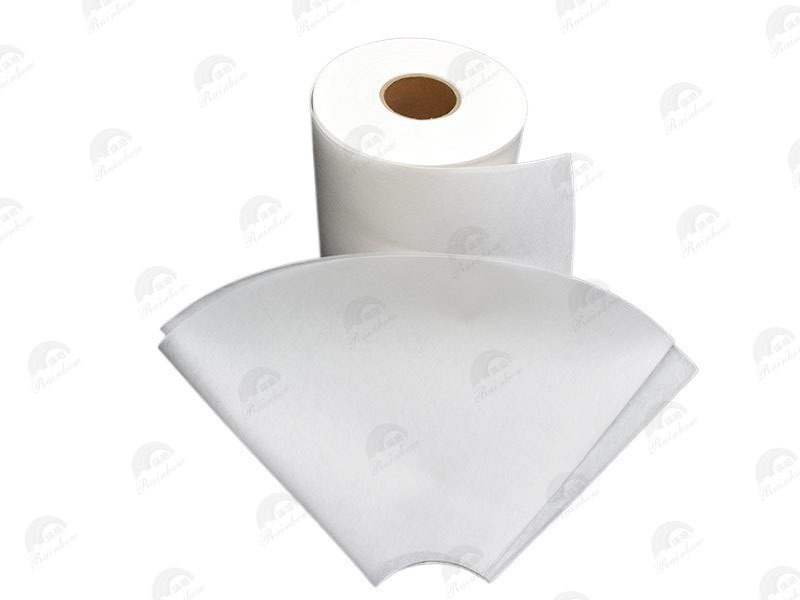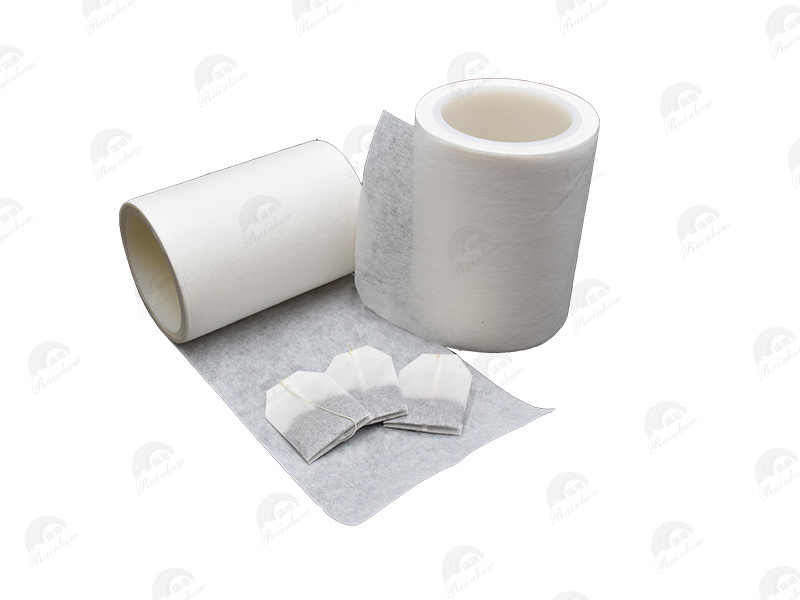The Role of GRS Certification in Ensuring Quality Nonwoven Interlining
Release time:
2025-06-23
The Role of GRS Certification in Ensuring Quality Nonwoven Interlining
Table of Contents
1. Introduction to GRS Certification
2. Understanding Nonwoven Interlining
3. The Importance of GRS Certification in Textiles
4. How GRS Certification Ensures Quality in Nonwoven Interlining
4.1 Materials Traceability
4.2 Environmental Impact
4.3 Social Responsibility
5. Benefits of GRS Certification for Manufacturers
6. Benefits of GRS Certification for Consumers
7. Challenges in Implementing GRS Certification
8. Future Trends in GRS Certification and Nonwoven Interlining
9. Frequently Asked Questions (FAQs)
10. Conclusion
1. Introduction to GRS Certification
The Global Recycled Standard (GRS) certification is a vital tool in the textile industry, specifically aimed at promoting responsible production practices. Established by the Textile Exchange, GRS provides a framework for companies to demonstrate their commitment to sustainability by verifying the recycled content in their products, ensuring ethical production processes, and promoting environmental responsibility.
In the world of nonwoven interlining, which plays a significant role in garment construction, the demand for quality and sustainability is ever-increasing. By acquiring GRS certification, manufacturers can substantiate their claims regarding the material's quality and recycling processes, thus ensuring that they are contributing positively to environmental sustainability.
2. Understanding Nonwoven Interlining
Nonwoven interlining is a crucial component in the textile industry, serving as an adhesive layer between fabrics. Unlike traditional fabrics, nonwoven materials are produced through various methods, including bonding, felting, and thermal processes, rather than weaving or knitting. This versatility makes nonwoven interlining ideal for various applications, including clothing, home textiles, and industrial uses.
Given its significance, the quality of nonwoven interlining directly impacts the overall quality of the final textile product. Thus, ensuring that these materials meet high standards is essential for manufacturers looking to maintain competitive advantages in the market.
3. The Importance of GRS Certification in Textiles
The textile industry faces numerous challenges related to sustainability, environmental impact, and ethical labor practices. GRS certification addresses these issues by providing a comprehensive framework for companies to follow. By validating the use of recycled materials and ensuring responsible production processes, GRS certification helps companies build trust with consumers, who are increasingly demanding transparency and sustainability in the products they purchase.
With the growing emphasis on environmentally friendly practices and the reduction of waste, GRS certification is more important than ever in the textile industry. It acts as a catalyst for change, pushing manufacturers to adopt sustainable practices throughout their supply chains.
4. How GRS Certification Ensures Quality in Nonwoven Interlining
GRS certification ensures the quality of nonwoven interlining through various key mechanisms:
4.1 Materials Traceability
One of the primary components of GRS certification is materials traceability. This aspect ensures that manufacturers can track the origin of the recycled materials used in their products. By implementing a stringent tracking system, companies can verify that their nonwoven interlining is not only made from recycled content but also sourced from responsible suppliers. This transparency fosters consumer trust and encourages manufacturers to adhere to higher quality standards.
4.2 Environmental Impact
GRS certification requires companies to minimize their environmental impact throughout the production process. This includes guidelines for waste management, water usage, and energy consumption. By following these guidelines, manufacturers of nonwoven interlining can significantly reduce their ecological footprint, contributing to a cleaner and more sustainable textile industry.
4.3 Social Responsibility
Social responsibility is another crucial aspect of GRS certification. The standard mandates that certified companies must adhere to labor rights and ensure safe working conditions for employees. By promoting ethical labor practices, GRS certification helps safeguard the rights of workers in the textile industry, which is particularly important for nonwoven interlining production, often associated with high-volume, low-cost manufacturing.
5. Benefits of GRS Certification for Manufacturers
Manufacturers who achieve GRS certification enjoy several advantages:
- **Market Differentiation**: GRS certification serves as a unique selling point, helping manufacturers stand out in a competitive market. With consumers increasingly prioritizing sustainability, having a recognized certification can enhance brand reputation.
- **Access to New Markets**: Many retailers and brands are now requiring GRS certification from their suppliers. By obtaining this certification, manufacturers can access new markets and potential partnerships, expanding their business opportunities.
- **Improved Operational Efficiency**: The process of obtaining GRS certification often involves a thorough evaluation of production practices. This can lead to improved operational efficiency and reduced costs, benefiting the manufacturer's bottom line.
6. Benefits of GRS Certification for Consumers
Consumers also reap the rewards of GRS certification in several ways:
- **Quality Assurance**: With GRS certification, consumers can be confident that the nonwoven interlining they purchase meets strict quality standards. This assurance is crucial in making informed purchasing decisions.
- **Environmental Impact**: By choosing products with GRS certification, consumers actively contribute to environmental sustainability. This certification indicates that the product is made from recycled materials and produced under responsible environmental practices.
- **Ethical Consumption**: GRS certification signifies a commitment to ethical labor practices, allowing consumers to support brands that prioritize social responsibility.
7. Challenges in Implementing GRS Certification
While the benefits of GRS certification are significant, manufacturers may face challenges during the implementation process:
- **Cost of Certification**: The initial investment required to obtain GRS certification can be substantial, particularly for small and medium-sized enterprises. This may deter some manufacturers from pursuing certification.
- **Complex Documentation Requirements**: The certification process involves extensive documentation and compliance checks, which can be overwhelming for manufacturers not accustomed to such rigorous standards.
- **Limited Awareness**: Some manufacturers may lack awareness of GRS certification and its benefits, leading to missed opportunities for improvement and differentiation in the market.
8. Future Trends in GRS Certification and Nonwoven Interlining
As the textile industry continues to evolve, several trends are likely to shape the future of GRS certification and nonwoven interlining:
- **Increased Demand for Transparency**: Consumers are becoming more demanding regarding transparency in supply chains. GRS certification will likely become a prerequisite for many brands aiming to maintain consumer trust and loyalty.
- **Technological Advancements**: Innovations in technology will streamline the certification process, making it more accessible for manufacturers. This will enable a broader range of companies to pursue GRS certification.
- **Focus on Circular Economy**: As the industry shifts towards a circular economy model, GRS certification will play a crucial role in promoting recycling and sustainable practices in the production of nonwoven interlining and other textile materials.
9. Frequently Asked Questions (FAQs)
What is GRS certification?
GRS certification is a standard that verifies the recycled content of products and ensures responsible production practices in the textile industry.
Why is GRS certification important for nonwoven interlining?
GRS certification ensures that nonwoven interlining materials are produced sustainably, ethically, and with traceable recycled content, enhancing product quality and consumer trust.
How can manufacturers obtain GRS certification?
Manufacturers can obtain GRS certification by completing an application process that includes a thorough audit of their production practices and documentation of recycled materials used.
What benefits does GRS certification offer to consumers?
Consumers benefit from GRS certification through quality assurance, environmental sustainability, and the assurance of ethical labor practices in the products they purchase.
What challenges do manufacturers face in obtaining GRS certification?
Manufacturers may encounter challenges such as the cost of certification, complex documentation requirements, and limited awareness of the certification's benefits.
10. Conclusion
The role of GRS certification in ensuring quality nonwoven interlining cannot be overstated. As the textile industry grapples with issues of sustainability and ethical production, GRS certification emerges as a vital tool for manufacturers aiming to meet consumer expectations while enhancing their operational practices. By ensuring materials traceability, minimizing environmental impact, and promoting social responsibility, GRS certification not only benefits manufacturers but also empowers consumers to make informed choices in their purchasing decisions. As we look to the future, the importance of GRS certification is set to grow, making it an essential consideration for all stakeholders in the textile industry.
GRS Certified Nonwoven Interlining
Previous Page
Previous Page
Latest News
Nantong Rainbow Technology Co., Ltd.
Telephone:+86-13587673537
E-mail:chrislc717@163.com
Address: Group 42, Xizansi Village, Xiting Town, Tongzhou District, Nantong City, Jiangsu Province

Copyright©2024 Nantong Rainbow Technology Co., Ltd. | Powered by www.300.cn
Copyright©2024 Nantong Rainbow Technology Co., Ltd.
Powered by www.300.cn




